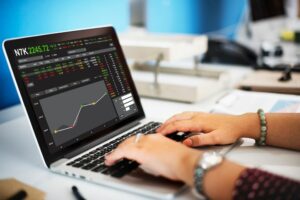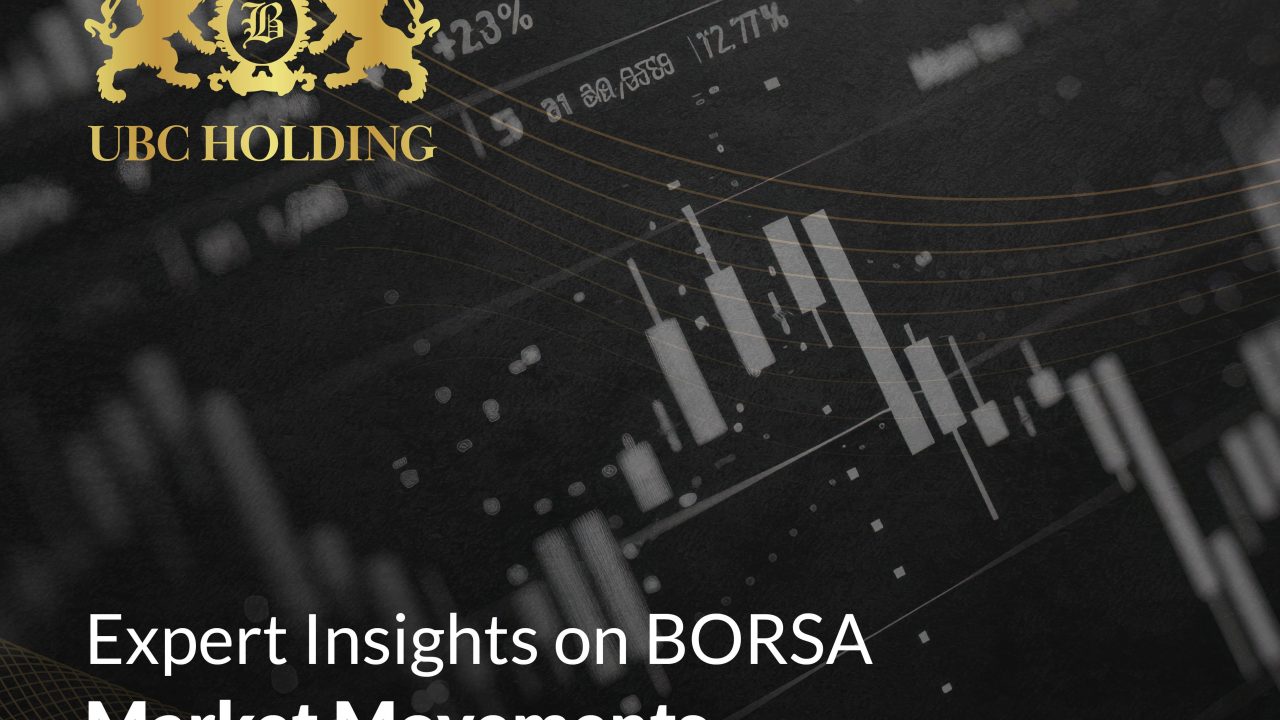In today’s digital era, stock exchange are no longer just bustling hubs of trading activity. They have evolved into sophisticated digital ecosystems powered by cutting-edge technology. If you’ve ever wondered how the stock exchange operates behind the scenes, the answer lies in an intricate web of technological advancements that drive modern trading. This article will dive deep into the pivotal role technology plays in contemporary stock exchanges, exploring its impact and looking ahead to future innovations.
The Evolution of Stock Exchanges: From Analog to Digital
A Brief History of Stock Exchanges
Stock exchanges have come a long way since their inception. From the open outcry systems of the past to today’s fully electronic trading environments, technology has revolutionized every aspect of how markets operate.
Early Days:
- Open Outcry: The traditional method where traders yelled bids and offers in trading pits.
- Manual Records: Transactions were recorded by hand, leading to delays and potential errors.
Modern Era:
- Electronic Trading: The shift to computerized systems in the late 20th century.
- Online Platforms: The rise of web-based trading platforms has made stock exchanges accessible to anyone with an internet connection.
The Impact of Technology on Stock Exchanges
Technology has fundamentally altered the mechanics of the stock exchange, resulting in increased efficiency and broader accessibility.
- Speed: Trades that once took minutes are now executed in milliseconds.
- Accessibility: Traders from across the globe can access markets anytime, thanks to online platforms.
- Cost Efficiency: Reduced costs due to the automation of many processes.
Key Technological Advancements in Modern Stock Exchanges

High-Frequency Trading (HFT): Speed Meets Precision
High-frequency trading has become a cornerstone of modern financial markets. By leveraging complex algorithms, traders can execute thousands of trades in mere seconds.
Advantages of HFT:
- Speed: HFT allows traders to react to market changes almost instantly.
- Liquidity: By executing numerous trades, HFT helps maintain market liquidity and tighter spreads.
Challenges:
- Volatility: Rapid trades can lead to sudden price swings and market volatility.
- Complexity: The technology behind HFT requires substantial infrastructure and expertise.
Blockchain Technology: Transparency and Security
Blockchain technology, best known for its role in cryptocurrencies, is making significant inroads into the stock exchange sector. It promises to enhance transparency and security.
Benefits of Blockchain:
- Transparency: All transactions are recorded on a public ledger, making them visible and immutable.
- Efficiency: Streamlines the clearing and settlement process, reducing transaction times.
- Security: The decentralized nature of blockchain reduces the risk of fraud and hacking.
Artificial Intelligence (AI) and Machine Learning: Smarter Trading
AI and machine learning are reshaping how traders and investors analyze data. These technologies provide powerful tools for making informed decisions.
Applications of AI and Machine Learning:
- Algorithmic Trading: AI algorithms can analyze market data and execute trades based on predefined criteria.
- Predictive Analytics: Machine learning models forecast market trends and potential movements.
- Sentiment Analysis: AI tools analyze news and social media to gauge market sentiment.
Cloud Computing: Scalability and Flexibility
Cloud computing has become integral to modern stock exchanges, offering scalability and cost-effectiveness.
Advantages of Cloud Computing:
- Scalability: Cloud platforms can easily adjust resources based on demand.
- Cost Efficiency: Reduces the need for on-premises hardware and maintenance.
- Accessibility: Enables remote access and enhances operational flexibility.
The Influence of Technology on Market Dynamics

Global Accessibility and Market Expansion
Technology has opened up global markets, allowing traders and investors from all corners of the globe to participate in stock exchanges.
Impacts of Global Accessibility:
- Broader Participation: Investors from different countries can access various markets.
- Diverse Trading Strategies: The availability of advanced tools allows for a wide range of trading strategies.
Efficiency and Cost Reduction
Technological innovations have streamlined many aspects of trading, leading to significant efficiency gains and cost reductions.
Efficiency Gains:
- Faster Transactions: Automation speeds up trade execution and reduces delays.
- Lower Costs: Technology cuts operational costs by automating processes and reducing the need for physical infrastructure.
Data-Driven Decision Making
Access to vast amounts of data has transformed how traders make decisions. Technology allows for real-time data analysis and informed decision-making.
Benefits of Data-Driven Trading:
- Informed Decisions: Real-time data enables traders to make decisions based on current market conditions.
- Strategic Insights: Advanced analytics provide valuable insights for developing trading strategies.
Addressing Technological Risks
While technology offers numerous benefits, it also introduces new risks that need to be managed.
Technological Risks:
- Cybersecurity Threats: Robust security measures are needed to protect against cyber attacks.
- System Failures: Reliable systems and backup plans are essential to mitigate the risk of outages.
Future Trends in Stock Exchanges

Emerging Technologies
Several emerging technologies are set to further revolutionize stock exchanges:
- Quantum Computing: Offers unprecedented processing power, potentially transforming data analysis.
- 5G Networks: Will enhance connectivity and reduce latency, improving trading speed.
- Advanced AI: Future advancements in AI will continue to refine predictive analytics and trading strategies.
The Role of Regulation and Compliance
As technology evolves, so too must regulatory frameworks to ensure market stability and protect investors.
Regulatory Considerations:
- Adapting to Change: Regulators must stay informed about technological advancements and adjust regulations accordingly.
- Investor Protection: Ensuring that new technologies do not compromise market integrity or investor safety is crucial.
FAQs: Navigating Technology in Stock Exchanges
Q1: How has technology changed the speed of trading in stock exchanges?
A1: Technology has dramatically increased the speed of trading, with electronic systems enabling trades to be executed in milliseconds, compared to the minutes or hours required in the past.
Q2: What role does blockchain play in modern stock exchanges?
A2: Blockchain enhances transparency and security by providing a decentralized ledger of transactions. It streamlines processes such as clearing and settlement, reducing transaction times and increasing security.
Q3: How does AI improve trading strategies?
A3: AI improves trading strategies through algorithmic trading, predictive analytics, and sentiment analysis. It helps traders analyze large datasets, forecast market trends, and understand market sentiment more accurately.
Q4: What are the main benefits of cloud computing for stock exchanges?
A4: Cloud computing offers scalability, cost efficiency, and remote access. It allows stock exchanges to handle large volumes of data, reduce infrastructure costs, and maintain operational flexibility.
Q5: What are some future technological trends in stock exchanges?
A5: Future trends include quantum computing, which will enhance data processing capabilities, 5G networks for faster connectivity, and advanced AI for more precise predictive analytics and trading strategies.
Conclusion: Embracing the Future of Stock Exchanges
The role of technology in modern stock exchanges is nothing short of revolutionary. From high-frequency trading and blockchain to AI and cloud computing, these innovations are reshaping the landscape of financial markets. As technology continues to advance, stock exchanges will become even more efficient, accessible, and secure.
The integration of cutting-edge technologies not only enhances trading speed and accuracy but also opens up new opportunities for investors worldwide. As we look ahead, staying abreast of these technological advancements will be key to navigating the evolving world of stock exchanges.
So, whether you’re a seasoned trader or a newcomer to the world of finance, embracing these technological innovations will be crucial in making the most of the opportunities that lie ahead. The future of stock exchanges is bright, and technology is at the heart of this exciting transformation. Happy trading!

